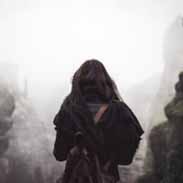Medieval History 111 UMD Final Exam ID’s Prep – Flashcards
Unlock all answers in this set
Unlock answersquestion
Pope Urban II
answer
Rome, 1042 - 29 July 1099 (11th Century), He is best known for initiating the First Crusade, and his struggle to for papal power
question
1st Crusade
answer
Mostly Levant and Anatolia, 1095-1099 (11th Century), The first of a number of crusades that attempted to capture the Holy Land, called for by Pope Urban II, resulted in a victory
question
The Pope Speech
answer
Piacenza, 1095 (11th Century), Motivated people to go to on the crusade and introduced the idea of sins be forgiven on the pilgrimage
question
4th Crusade
answer
Venice, 1202-04 (13th Century), Planned to go to the Holy land, but failed, led to the sack Constantinople
question
Pope Innocent III
answer
Papal States Rome, 1161 -1216 (13th Century), One of the most powerful popes in the Middle Ages, called the 4th Crusade in 1198
question
The Treaty of Venice
answer
Venice, 1201 (13th Century), Doge Enrice Dandolo agreed to supply crusaders with sufficient vessel, 85,000 marks to transport, this is important because it marks the start of the involvement of the venetians in the crusade
question
The Cather Hersey
answer
Northern Italy, 1209-1229 (13th Century), Goal was to free themselves from the material world through the ritual consolamentum
question
The Albigensian Crusade
answer
Languedoc, France, 1209 - 1229 (13th Century), 20 yearlong military campaign initiated by Pope Innocent III to eliminate Catharism in Languedoc, in southern France, this did not do much because the Dominican inquisitor wiped out heresy
question
Magna Carta
answer
England, 1215 (13th Century), is a charter agreed to by King John of England at Runnymede, near Windsor, this document help create the natural laws that we have today
question
Lay Piety
answer
Rome, Unknown, showed different ways that people express their love for God, gave rise to some heresy
question
Hildegard of Bingen
answer
Holy Roman Empire, 1179 (12th Century), a German Benedictine abbess, writer, composer, philosopher, Christian mystic, visionary, and polymath, she had a huge presence in the Church for a woman
question
Dominican Order
answer
Rome,1216 (13th Century) a mendicant Catholic religious order founded by the Spanish priest Dominic of Caleruega in France
question
Leprosy
answer
All over Europe, (10th,11th, and 12th Century), Skin Lesions, severe pain, loss of feeling and nerve damage, this disease was significant because it showed how much the church would help these type of people, giving them shelter, treatment, etc.
question
The Inquisition
answer
France, (12th century), a group of institutions within the government system of the Catholic Church whose aim was to combat heresy, tried but failed to get rid of heresy
question
Spanish Inquisition
answer
Spain, 1483 (15th Century), maintain Catholic orthodoxy in their kingdoms and to replace the Medieval Inquisition, which was under Papal control, they were able to get rid of heresy, searched and punished false, Jewish and Muslim
question
Medieval Education
answer
All over Europe, As Early as 1088-1500, The education system of Middle Ages was highly influenced by the Church. Basic course of study used to contain Latin language, grammar, logic, rhetoric, philosophy, astrology, music and mathematics, it was significant because some of the ways of teaching are still here til this day
question
Knights
answer
All over Europe, As early as the (9th Century), The knight had many jobs, from protecting and enforcing the will of the church to doing the same with his kingdom. Strong, righteous, and civil, their significance is that now the church as some form of army
question
Tournaments
answer
All over Europe, (12th to 16th Centuries), was a chivalrous competition or mock fight, this was practice,
question
Mongol Empire
answer
Began in East-Central Asian, Serbia but expanded greatly, 1206 (13th Century), existed during the 13th and 14th centuries and was the largest contiguous land empire in history,
question
Chinggis (Genhis) Khan
answer
Khentii Mountains, Mongolia, 1162 - August 18, 1227 (12th Century), The Great Khan and founder of the Mongol Empire, he came to power by uniting many of the nomadic tribes of Northeast Asia
question
The Golden Horde
answer
Sarai Batu, 1204's-1502 (13th and 16th Century), was originally a Mongol and later Turkicized khanate established in the 13th century and originating as the northwestern sector of the Mongol Empire, Ruled over China, ended the Abbasid Caliphate
question
Marco Polo
answer
Venice, Italy, 1254- 1324 (13th and 14th Century), was a Venetian merchant, explorer, and writer. His travels are recorded in Book of the Marvels of the World, a book that described to Europeans the wealth and great size of China, its capital Peking, and other Asian cities and countries. Important because of how he was able to cover some much land in his life, Italy to China and back
question
Siege of Acre
answer
Acre, Israel, 1291 (13th Century), the loss of the Crusader-controlled city of Acre to the Mamluks, the significant of this is that the Crusaders no longer controlled any part of the Holy Land.
question
Italian City-States
answer
Italy, (9th to 15th Century), were a political phenomenon of small independent states mostly in the central and northern Italian peninsula, brought many conflicts to Italy
question
Guelph
answer
Italian city-states, (13th-14th centuries), were factions supporting the Pope, disliked the Ghibellines
question
Ghibellines
answer
Italian city-states, (13th-14th centuries), were factions supporting the Holy Roman Emperor, disliked the Guelph
question
Genghis Khan
answer
The Great Khan and founder of the Mongol Empire, Began Rule in 1206, Mongolia, launched the Mongol invasions that conquered most of Eurasia
question
Black Death
answer
One of the most devastating pandemics in human history, resulting in the deaths of an estimated 75 to 200 million people in Eurasia, 1346 to 1353(14th Century), Europe



